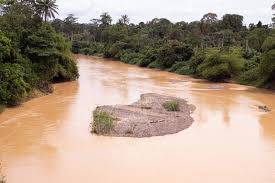Environmental Concerns from Illegal Mining Activities
The rampant illegal mining activities, locally known as "galamsey," are wreaking havoc on Ghana’s environmental landscape, particularly impacting local water sources and the livelihoods of communities. Over the past decade, this unregulated mining practice has proliferated, driven by the allure of gold and the lack of stringent enforcement against illegal operators. The consequences have become increasingly dire, prompting local leaders and environmental advocates to demand immediate action to address these pressing issues.
One of the most alarming effects of galamsey is the contamination of water bodies. Miners often resort to toxic chemicals, such as mercury and cyanide, to extract gold, leading to the pollution of rivers and streams. These pollutants not only compromise the quality of water available for drinking, but they also devastate aquatic ecosystems. Fish populations decline as their habitats are destroyed, disrupting local fisheries that many families rely on for their livelihoods. The pollution also raises health concerns among communities, leading to waterborne diseases and long-term health problems.
Local leaders are increasingly vocal about the need for sustainable mining practices that prioritize environmental conservation and community well-being. They emphasize that the traditional methods of mining, which involved less destructive techniques and respected local ecosystems, should be revived. Sustainable practices, such as the use of environmentally friendly extraction methods and the implementation of strict regulations for all mining activities, are critical to protecting both water sources and the health of local communities.
Moreover, there is a pressing need for collaboration between the government, local communities, and environmental organizations. Local leaders are advocating for increased enforcement of existing mining laws and the imposition of stricter penalties on illegal operators. They argue that only through unified efforts can the harmful impacts of galamsey be mitigated.
The situation remains urgent as communities continue to feel the effects of environmental degradation. The degradation of water sources not only threatens local agriculture, which is dependent on clean water, but also exacerbates poverty and inequality in these regions. If left unaddressed, the cycle of poverty and environmental harm will only worsen.
In conclusion, the issues surrounding galamsey highlight the critical intersection of environmental sustainability and community health. Local leaders are calling for immediate action to safeguard water resources and promote sustainable practices that ensure the well-being of both the environment and the communities that depend on it. The time for change is now.



No comments yet
Be the first to share your thoughts!